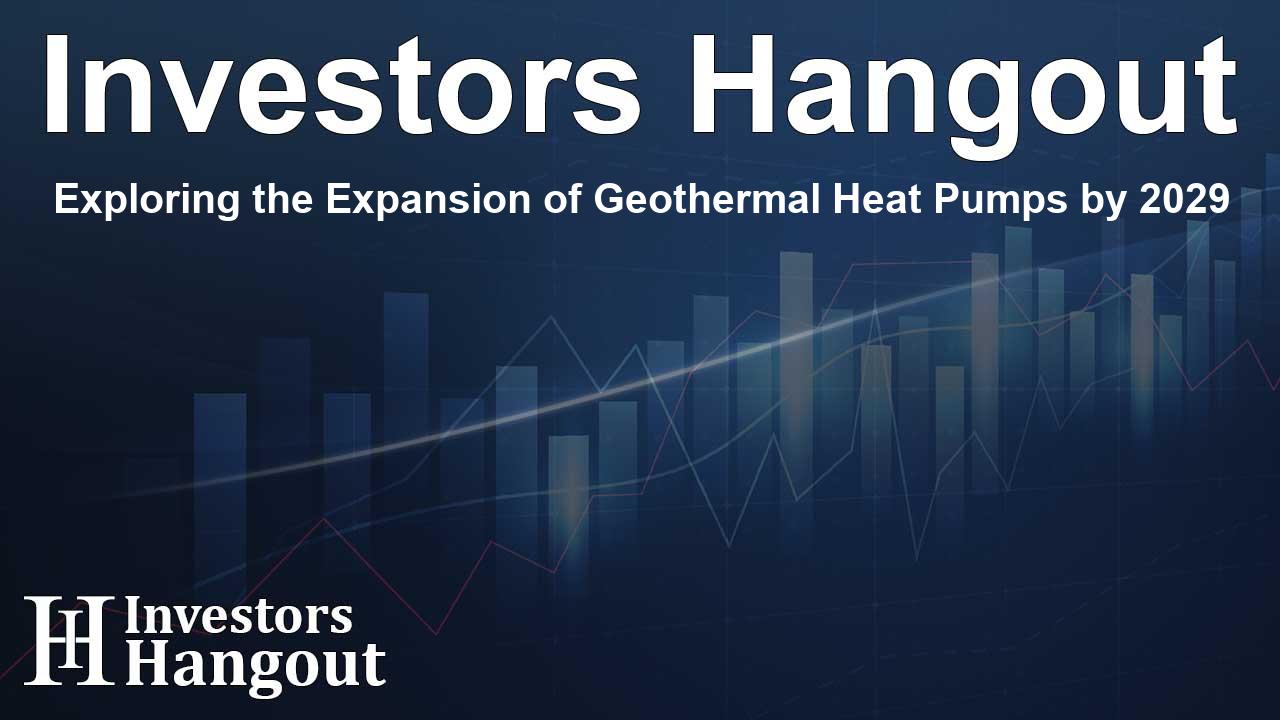Exploring the Expansion of Geothermal Heat Pumps by 2029

Geothermal Heat Pump Market Growth Dynamics
The global market for geothermal heat pumps is on the path to significant expansion. With an anticipated growth of USD 6.48 billion from 2025-2029, the industry is poised to experience a compound annual growth rate (CAGR) of over 8.9%. This growth is primarily due to the operational advantages geothermal heat pumps offer over traditional heating and cooling systems.
Key Market Drivers
One of the main factors propelling the geothermal heat pump market is the increasing demand for energy efficiency and cost savings in both residential and commercial sectors. The emergence of Building Energy Management Systems (BEMS) has catalyzed this trend, encouraging various countries to adopt energy-efficient solutions through regulatory frameworks. However, the high initial installation costs of geothermal systems remain a hurdle that the industry must overcome.
Technological Innovations in Geothermal Energy
Technological advancements are frequently addressing the challenges posed by high upfront costs. Innovations in drilling equipment and geothermal technology have seen improvements that make installations faster and less invasive, reducing expenses significantly over time. Moreover, as the market embraces digital transformation, artificial intelligence is playing a crucial role in optimizing energy use and management within geothermal systems.
Challenges Facing the Geothermal Heat Pump Market
Despite the promising growth projections, the geothermal heat pump market must navigate several challenges. High installation and configuration costs are substantial barriers for both residential and commercial adopters. The requirement for specialized equipment and the complexity of installation could deter potential customers, particularly if they are in regions with other less costly heating solutions.
Regional Adoption Variances
The efficiency of geothermal heating systems also varies based on geographic location. In some areas, the lack of geothermal resources can limit technology effectiveness. To navigate this, market participants must comprehend local climate conditions and variations in regulations governing the use of such technology.
Market Segmentation Overview
The geothermal heat pump market can be segmented into key categories: end-user, type, application, and geography. The end-user segment includes both residential and non-residential categories, with residential systems experiencing the most demand due to growing awareness regarding energy-efficient solutions. The types of geothermal systems available include closed-loop and open-loop options, each with its unique benefits.
Insights on Closed and Open Loop Systems
Closed-loop systems are particularly favored for their durability and low maintenance requirements, relying on a network of pipes to circulate refrigerant and extract heat from the ground. Meanwhile, open-loop systems can utilize existing water bodies which allow for greater flexibility in installation but may be limited by geographic availability of water sources.
Future Outlook
The future of the geothermal heat pump market looks promising, driven by the urgency for renewable energy solutions. Governments around the world are offering regulations, incentives, and subsidies encouraging consumers to switch to geothermal systems. This market is set for growth as larger industries adopt greener technologies, while residential consumers seek more sustainable options to reduce their carbon footprint.
About Technavio's Research
As a leading global technology research and advisory company, Technavio focuses on identifying emerging market trends, providing actionable insights that help businesses develop effective strategies. With analysts dedicated to covering a diverse range of industries, Technavio ensures that clients stay well-informed about market dynamics and opportunities.
Frequently Asked Questions
What is driving the growth of the geothermal heat pump market?
The growth is driven by the demand for energy efficiency, cost savings, and advancements in building energy management systems.
What challenges does the geothermal heat pump market face?
High initial installation costs and variances in geographic resource availability pose challenges for market growth.
How are technological innovations impacting the geothermal industry?
Technological innovations enhance the efficiency and reduce the costs associated with the installation and operation of geothermal systems.
What types of geothermal heat pump systems are available?
The market offers closed-loop and open-loop systems, each suited for different environmental conditions and user needs.
What is the expected future of the geothermal heat pump market?
The future looks bright due to increasing adoption driven by government incentives and the growing demand for sustainable energy solutions.
About The Author
Contact Ryan Hughes privately here. Or send an email with ATTN: Ryan Hughes as the subject to contact@investorshangout.com.
About Investors Hangout
Investors Hangout is a leading online stock forum for financial discussion and learning, offering a wide range of free tools and resources. It draws in traders of all levels, who exchange market knowledge, investigate trading tactics, and keep an eye on industry developments in real time. Featuring financial articles, stock message boards, quotes, charts, company profiles, and live news updates. Through cooperative learning and a wealth of informational resources, it helps users from novices creating their first portfolios to experts honing their techniques. Join Investors Hangout today: https://investorshangout.com/
The content of this article is based on factual, publicly available information and does not represent legal, financial, or investment advice. Investors Hangout does not offer financial advice, and the author is not a licensed financial advisor. Consult a qualified advisor before making any financial or investment decisions based on this article. This article should not be considered advice to purchase, sell, or hold any securities or other investments. If any of the material provided here is inaccurate, please contact us for corrections.
